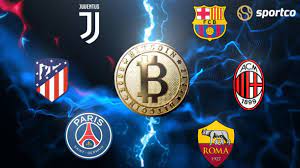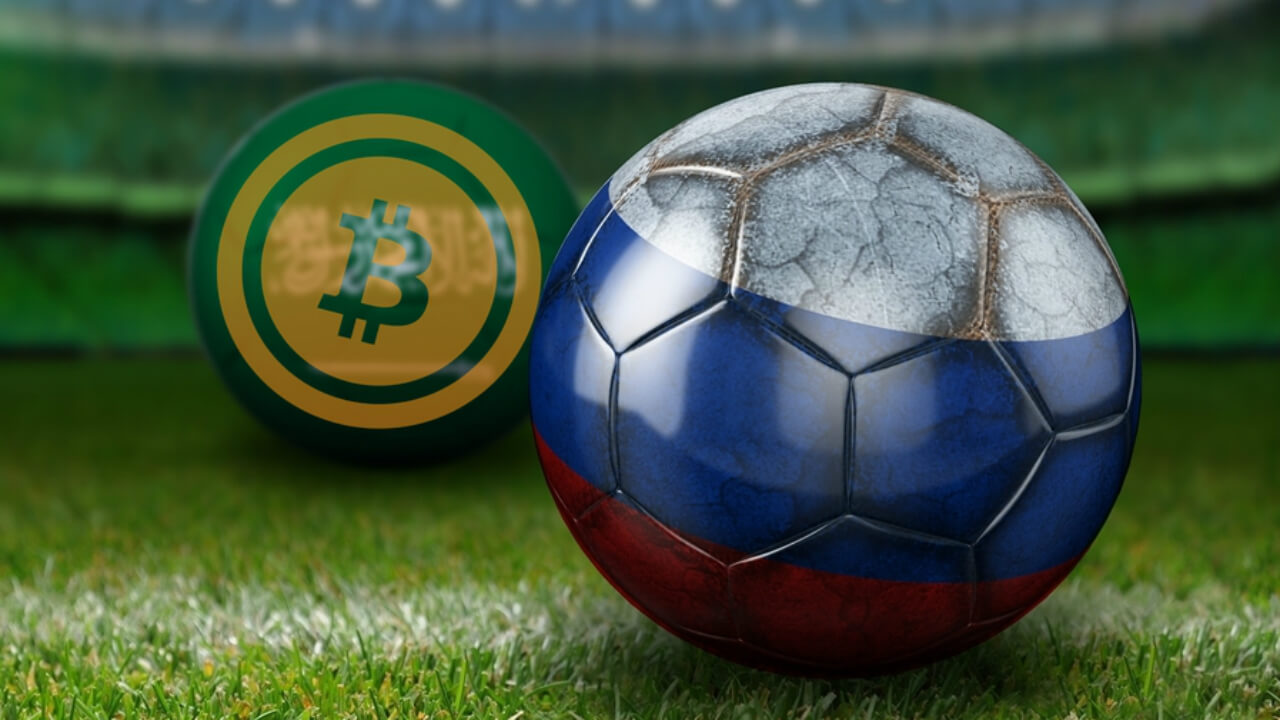The Perfect Combination Of Cryptocurrency And Football Raises Concerns
Over the last year, the worlds of professional cryptocurrency and football have been intimately entwined. According to critics, it is dangerous that the game has become so inextricably linked to an unregulated, unpredictable business.
Author:Henrik SchmidtJun 02, 202332.2K Shares608.8K Views

Over the last year, the worlds of professional cryptocurrency and football have been intimately entwined. According to critics, it is dangerous that the game has become so inextricably linked to an unregulated, unpredictable business.
UEFA, the governing body of European football, announced a sponsorship arrangement with Socios.com, a cryptocurrency startup that distributes "fan tokens" that can only be purchased via its own blockchain, Chiliz.
As with any cryptocurrency, Socios fan tokens are digital assets with a volatile value. Owners of fan tokens enjoy benefits and can vote on minor club matters on occasion.
Footballsupporters in Europe expressed shock over UEFA's agreement. It stated in a statement that "this is an illogical action at a time when footballdesperately needs protection from cryptomercenaries."
It's part of a trend over the previous two years in which numerous cryptocurrency companies and platforms have invested extensively in professional football.
Seventeen of England's twenty Premier League clubs have entered into at least one business agreement with a cryptocurrency startup, with six clubs, including Arsenal and Manchester City, having previously signed with Socios.
Several teams, including Watford and Southampton, include cryptocurrency as their primary sponsor on their jerseys. Watford also features the Dogecoin emblem as a shirt sleeve sponsor—a "joke" cryptocurrency affiliated with Elon Musk. $.
Socios has partnerships with clubs and leagues around Europe and South America, while numerous other cryptocurrency-related businesses have achieved significant commercial arrangements in Turkey, Italy, and Argentina, among other countries.
Another aspect of football's expanding association with cryptocurrencies is the NFT (nonfungible token) sector, in which clubs and national leagues are building their own digital assets, such as images or videos, for purchase and sale. Numerous prominent sportsmen, notably Brazil's Neymar, have also been promoting the assets aggressively (see tweet below).
Socios has not yet signed with any Bundesliga clubs. TSG Hoffenheim, however, established an NFT relationship with the cryptocurrency Babydoge earlier this month, while the Bundesliga agreed to an NFT partnership with Sorare in late 2021.
Engaging The Wallets Of Fans
The cryptofootball boom has sparked worry amid broader concerns about the threats to financial stability posed by the mostly unregulated market. Last Thursday, a group that makes financial recommendations to the G20 stated that regulations governing the digital asset market should be established immediately.
Martin Calladine, an investigative reporter and author of "The Ugly Game," told DW that he believed football's embrace of cryptocurrency was the result of a "perfect storm," with the pandemic fueling both a dramatic rise in cryptotrading (the global market capitalization of the cryptosector has increased by more than 500 percent in the last two years) and a funding crisis in professional football.
He argues that the primary goal of so-called "fan engagement" services provided by corporations such as Socios is to entice customers to purchase the company's cryptocurrency.
"It is self-evident that the vast majority of these tokens are not held by club supporters," he continues. And even when they do purchase things, it is not to demonstrate their allegiance or sense of commitment. They are purchasing it in order to benefit from it. "
According to Calladine, the fact that anyone may purchase a club's tokens, not just members, suggests that it is not a relevant tool for fan participation. A recent first-time sale of tokens for Premier League club Crystal Palace revealed that more than 90% of buyers had previously acquired tokens from other clubs.
Additionally, he notes that the polls on which token owners can vote are mainly irrelevant and have poor participation rates.
"This cannot be a fan engagement product, unless it is the world's worst fan engagement product," he stated.
Alexandre Dreyfus, CEO of Socio, maintains that the company's tokens are for fan participation, not investment.
"A fan who wishes to vote will never trade, and the vast majority of them will never trade," he previously stated on the Sportspro StreamTime program. "You have fans that purchased for €2 [$2,3] and sold them at €10 [$2,3], but... who can blame them?"
Untrustworthy Businesses
Calladine describes the Socios brand's rapid growth and development as "amazing." Nonetheless, there are questions about the business viability of a large number of new enterprises entering the industry.
Manchester City formed a relationship with 3Key, a firm characterized in press materials as a "DeFi-centric cryptostartup," in November. Only two days later, Man City called off the deal after Calladine and others discovered scant proof that the company or those supposed to operate it truly existed.
Simultaneously, Barcelonacanceled a partnership with NFT company Ownix after learning that the firm's executives were facing sexual assault and fraud accusations.
Financially Prosperous But Morally Bankrupt
According to critics such as Calladine, there is a real risk that average fans will lose huge sums of money investing in cryptocurrencies due to their affiliation with football. He notes that demand for tokens is particularly strong in football-dominated countries such as Brazil and Turkey, which are also experiencing significant economic difficulties.
He adds that the fan token business exists solely to siphon off people's money and uses footballto lend it credibility.
Arsenal's two ad campaigns for fan tokens were recently banned by the UK's advertising regulator for "taking advantage of consumers' inexperience or credulity, trivializing cryptoasset investment, misleading consumers about the risk of investment, and failing to make it clear the "token" was a crypto asset."
Conclusion
Calladine is optimistic that the increased sense of urgency surrounding the issue will result in regulatory action. He does, however, point to English football's longstanding commercial relationship with gamblingcompanies, as well as other contentious issues such as Saudi Arabia's recent takeover of Newcastle United, as examples of how the industry frequently absolves itself of moral responsibility when money is involved.
He explained that it's "a match made in heaven between football's amorality and greed for money and the cryptoworld's gamblers." "You can see how joyfully they dance."

Henrik Schmidt
Author
Henrik Schmidt is a dedicated writer focusing on sports, betting, and various entertainment aspects related to the sporting world. With a passion for exploring the intersections of sports and entertainment, Henrik brings a unique perspective to his articles. His expertise in these areas ensures that readers receive informative and engaging content, making him a valuable contributor to the sporting community.
Latest Articles
Popular Articles
